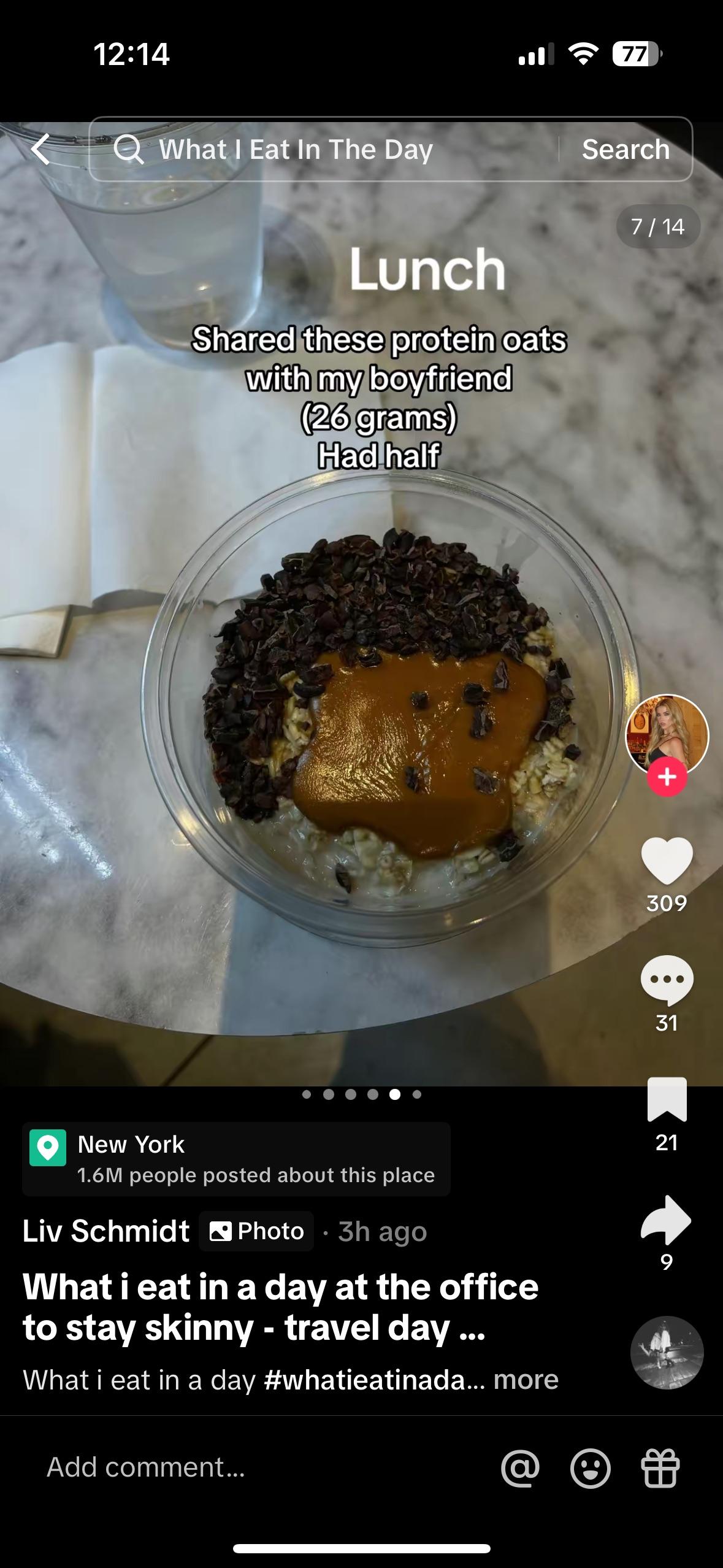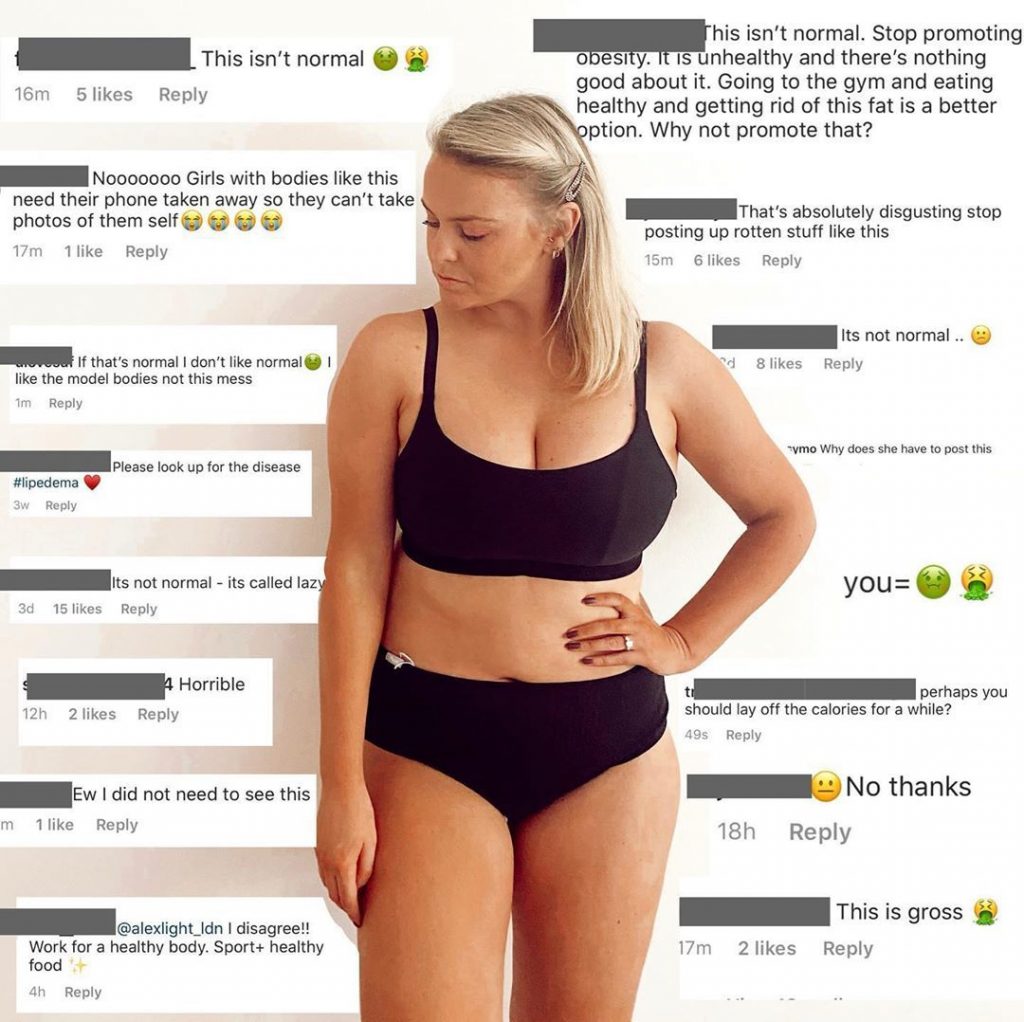In today’s digital age, platforms like Instagram and TikTok have drastically reshaped perceptions of beauty and body standards. The rise of photoshopped images and filters has blurred the line between reality and unattainable ideals, making many believe that the average person should look like an Instagram model. From celebrities like Kim Kardashian to your next door neighbor, the use of editing apps like Facetune and Photoshop has become widespread, and the pressure to conform to unrealistic beauty standards has intensified. This shift, driven by social media, has distorted self-image, contributing to the rise of eating disorders and body dysmorphia, particularly among young girls.
Historically, photoshopping and retouching were confined to the glossy pages of magazines, used for fashion spreads and advertisements. This kind of digital manipulation was largely limited to models, celebrities, and media professionals. However, as smartphones and editing apps became accessible, the tools once used by the fashion industry entered the hands of everyday people. Today, anyone with a phone can edit their photos to achieve flawless skin, a slimmer waist, or a more defined jawline. This democratization of beauty manipulation has amplified unhealthy societal expectations of what people should look like.
Platforms like Instagram and TikTok have made these edited images the norm, fostering a “world brain” of shared, idealized beauty standards. Originally coined by H.G. Wells to describe collective human knowledge, the concept of a world brain now applies to the way beauty ideals spread globally through social media. Millions of users interact with content that adheres to these curated ideals, reinforcing a singular image of beauty. The most popular content—often featuring heavily edited, hyper-perfect bodies—gains visibility and sets the new standard, leading many to forget what unaltered, natural bodies look like.
This shift has had a profound impact on how we view ourselves and others. People increasingly criticize celebrities or influencers for dating individuals who don’t meet these unrealistic standards, as if “normal” has become unacceptable. The edited, filtered bodies that dominate social media create an unrealistic baseline for comparison, fueling insecurities and distorting perceptions of what is natural.
One of the most troubling consequences of this digital distortion is its impact on young girls, who are particularly vulnerable to these pressures. As they scroll through their feeds, they are bombarded with images of “perfect” bodies and internalize the belief that this is the standard they must meet. The rise of photoshopped images has made it difficult for them to distinguish between real and digitally enhanced bodies, leading to feelings of inadequacy and a relentless pursuit of an unattainable ideal.
This culture is directly linked to the rise in eating disorders and body dysmorphia. Studies show that the more time young people spend on social media, the more likely they are to develop body image issues. Platforms like Instagram and TikTok promote a culture of comparison, where users are constantly exposed to edited images of thin, toned bodies with exaggerated curves that are nearly impossible to achieve naturally. As a result, young girls are increasingly turning to unhealthy behaviors to emulate these images.
Toxic diet culture has also flourished on these platforms. While there are voices promoting body positivity and self-love, they are often overshadowed by content glorifying restrictive diets and extreme weight loss. Influencers and anonymous accounts share tips on how to drastically reduce calorie intake or hide the signs of disordered eating, presenting these behaviors as healthy. Accounts like Liv Schmidt and Kingkrabbypatty have gained large followings by promoting diets that limit calorie intake to unhealthy levels, sometimes as low as 1,000 calories a day while maintaining an intense workout routine. This messaging promotes starvation as a means to achieve an ideal body, encouraging dangerous behaviors.


The comment sections on these posts can worsen the problem. Many users, often young girls, share their own experiences with extreme weight loss tactics, reinforcing the idea that these behaviors are acceptable. This community validation can make it even harder to recognize the harmful effects of disordered eating, as individuals see their struggles reflected in others and are encouraged to continue down an unhealthy path.
On the flip side, the body positivity movement has gained momentum on social media, with accounts promoting self-acceptance and challenging traditional beauty standards. Messages like “all bodies are beautiful” and “clothes are meant to fit you” aim to create a more inclusive narrative around beauty. However, even these positive posts often face backlash, with body-shaming comments telling people to lose weight and conform to societal standards.

The coexistence of body positivity and toxic diet culture on social media can be confusing and harmful, particularly for young girls still forming their identities. While they may see messages promoting self-love, they are just as likely to encounter content telling them they are not good enough unless they meet certain beauty standards. This constant push and pull between self-acceptance and societal pressure can lead to anxiety, depression, and a distorted sense of self-worth.
Sources
Dahlgren, Camilla Lindvall, Christine Sundgot-Borgen, Ingela Lundin Kvalem, Anne-Louise Wennersberg, and Line Wisting. “Further Evidence of the Association between Social Media Use, Eating Disorder Pathology and Appearance Ideals and Pressure: A Cross-Sectional Study in Norwegian Adolescents.” Journal of Eating Disorders 12, no. 1 (February 29, 2024): 34. https://doi.org/10.1186/s40337-024-00992-3.
Harper’s BAZAAR. “Why This Body Positivity Influencer Refuses to Give in to Trolls,” September 24, 2020. https://www.harpersbazaar.com/uk/beauty/mind-body/a34124242/alex-light-body-positivity-influencer-trolls/.
“If KKP Has No Haters I’m Dead,” n.d. https://www.google.com/url?sa=i&url=https%3A%2F%2Fwww.tiktok.com%2Fdiscover%2Fkingkrabbypatty-weigh&psig=AOvVaw0FpFvA0Wo-mhQhhL6xELGY&ust=1732458673672000&source=images&cd=vfe&opi=89978449&ved=0CBcQjhxqFwoTCPiN5tLV8okDFQAAAAAdAAAAABAg.
“Liv Schmidt AN Content.” R/NYCInfluencerSnark, n.d. https://www.reddit.com/r/NYCinfluencersnark/comments/1d78h28/liv_schmidt_an_content/.
Sidani, Jaime E., Ariel Shensa, Beth Hoffman, Janel Hanmer, and Brian A. Primack. “The Association between Social Media Use and Eating Concerns among U.S. Young Adults.” Journal of the Academy of Nutrition and Dietetics 116, no. 9 (May 5, 2016): 1465. https://doi.org/10.1016/j.jand.2016.03.021.



Great blog, thank you so much for talking about this issue. It should definitely be talked about more, every day the toxic diet culture and idealized beauty standards are becoming more and more normalized and it’s just so frustrating to see. The amount of young girls I come across on social media who struggle with eating disorders because of this normalization and unhealthy standards makes me feel really hopeless, as someone who used to have the same mindset and very similar struggles. In today’s digital age, it’s become almost impossible to escape.
Thank you for your thoughtful comment and for sharing your experience. It’s heartbreaking how pervasive these harmful beauty standards have become, especially with the constant stream of curated, unrealistic images on social media. The normalization of toxic diet culture and the pressure to conform to impossible ideals are issues that affect so many, often in deeply personal and painful ways. As someone who has struggled with similar feelings, your perspective really highlights how widespread this issue is and how it impacts mental health. It’s so important to continue having conversations like these, not just to raise awareness but also to remind those struggling that they are not alone.
This is such an important topic! I feel that in the past years there are more discussions about the toxic diet culture on the internet. The normalization of “perfect” bodies and unhealthy eating habits is truly scary. As you mentioned the impact it has on young girls is really concerning. It also had a big impact on me when I was a teenage girl and I can’t image how much pressure girls feel with the internet at a full time high. However, I also believe that body positivity is gaining a lot of momentum online and is only becoming bigger. I hope there message will reach everyone struggling with their body and unhealthy eating habits.
Fantastic blog! This topic resonates with me a lot. This very phenomenon is one of the main reasons I stopped using platforms like instagram as being constantly exposed to these unrealistic standards ended up being quite damaging for my self image. I can imagine it must be even worse fro young girls nowadays with how much more online they are than we were at those ages.
This toxic guilting of women with unrealistic imagery is everywhere, and it’s not just about young girls. Look at the content aimed at mums – the pressure from social media on how to raise children is relentless. As if that weren’t enough, aging women are stigmatized too. The “never good enough” narrative is a perfect fuel for capitalism as it drives an endless cycle of selling solutions to problems it creates!
The pressure to meet these unattainable standards drives consumption, whether it’s beauty products, parenting tools, or anti-aging treatments. It’s build to profit on insecurity by pushing women to chase an impossible ideal. As we look back today to the ‘90s, making fun of its Barbie-like, fabricated standards, shouldn’t we be ready to challenge and ridicule today’s toxicity for what it is? Isn’t it time we simply accept and appreciate our human nature as it is?
Thank you for shining a light on such a crucial and widespread issue. The pressure created by toxic diet culture and unrealistic beauty standards impacts people of all ages, not just young girls, though they are often the most vulnerable. Many have shared personal stories of how these ideals harmed their self-image, whether as teenagers battling disordered eating or adults navigating the constant expectations from society.
It’s so important that movements like body positivity are gaining traction, offering an alternative to these harmful messages. Conversations like this are vital for challenging these toxic narratives, supporting those affected, and promoting self-acceptance.
Thanks for mentioning this topic! It’s so important, especially given how prevalent these issues are today. The way social media influences body image is something that needs more attention, and I’m glad you brought it up.